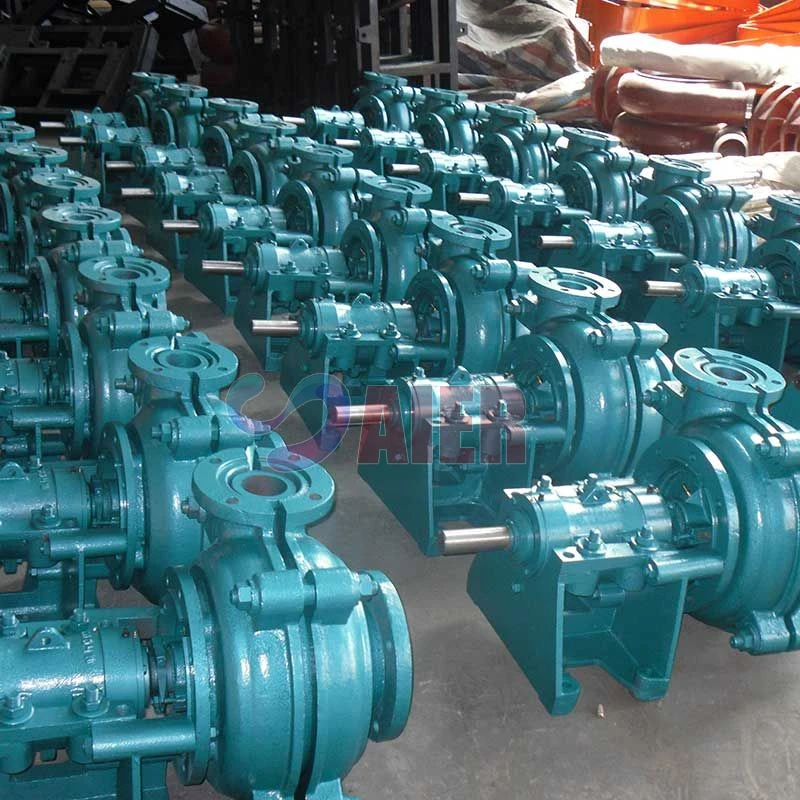Dis . 20, 2024 02:14 Back to list
Slurry Pump Impeller Material Manufacturers and Their Key Specifications and Features
Understanding Slurry Pump Impeller Materials in Factories
Slurry pumps are essential components in various industrial applications, particularly those involving the transportation of abrasive and viscous materials, such as mining, water treatment, and construction. The impeller of the slurry pump plays a crucial role in ensuring efficient operation and longevity of the pump. This article provides an overview of the different materials used for slurry pump impellers, their properties, advantages, and considerations when selecting the appropriate material for specific applications.
Importance of Impeller Material
The impeller is responsible for transferring energy to the slurry, enabling the movement of solid-liquid mixtures through the pump. Given the harsh conditions in which slurry pumps operate—often involving high concentrations of solids, corrosive agents, and abrasive particles—the material of the impeller is critical. The choice of material can significantly affect the performance, efficiency, and lifespan of the pump.
Common Materials Used for Impellers
1. Cast Iron Cast iron is a traditional material choice for slurry pump impellers due to its excellent wear resistance and strength. It is often used for applications involving relatively less abrasive slurries. However, cast iron can be susceptible to corrosion, which limits its use in more aggressive environments.
2. Stainless Steel Stainless steel impellers offer good corrosion resistance and are suitable for pumps handling slurries that include aggressive chemicals. The durability of stainless steel makes it an attractive option for varying temperature and pressure conditions. However, it may not be as resilient as some other materials in terms of wear due to abrasives.
3. High Chrome Alloys High chrome alloys are known for their exceptional hardness and wear resistance, making them ideal for abrasive slurries found in mining and mineral processing. These materials can prolong the life of the impeller significantly, reducing the need for frequent replacements. However, they can be more brittle, which may lead to damage under certain impact conditions.
4. Rubber-lined Impellers Rubber-lined impellers are designed to provide excellent resistance to corrosion and abrasion. The rubber material absorbs impacts caused by solid particles, extending the lifespan of the impeller. However, they may not be suitable for all types of slurries, particularly those at high temperatures or pressures, as the rubber can degrade over time.
slurry pump impeller material factories

5. Polyurethane Polyurethane impellers are lighter than metal counterparts and provide good abrasion resistance. They are suitable for applications involving moderate abrasiveness without the need for heavy metal components. Nevertheless, their performance can diminish under extreme temperatures or aggressive chemicals.
Factors to Consider When Choosing Impeller Material
Choosing the right material for a slurry pump impeller involves several considerations
- Abrasiveness of the Slurry The more abrasive the material, the harder or more wear-resistant the impeller material should be. - Chemical Compatibility The slurry's chemical composition should be evaluated to ensure that the impeller material can withstand potential corrosive effects.
- Temperature and Pressure Conditions High temperatures and pressures can affect material integrity, necessitating materials that can maintain performance under these conditions.
- Cost vs. Performance While some materials may offer superior performance, they may also come with a higher price tag. Balancing cost with the required performance is essential.
- Maintenance Requirements Understanding the maintenance needs of different materials can help in choosing an impeller that aligns with operational capabilities and downtime considerations.
Conclusion
In summary, the choice of material for slurry pump impellers is vital to the efficiency and longevity of the pump system. By understanding the properties and applications of various materials—from cast iron to high chrome alloys—factories can make informed decisions that enhance the performance of their pumps. Ultimately, investing time in the selection of the right impeller material can lead to significant benefits in operational efficiency, reduced maintenance costs, and improved productivity in slurry-handling processes.
-
High Quality Portable Submersible Slurry Pump Supplier & Manufacturer from China
NewsJun.10,2025
-
Slurry Pump Parts Manufacturer – High Quality Rubber Spare Parts from China
NewsJun.10,2025
-
High Quality 1/3 HP Submersible Sump Pump with Vertical - Reliable Supplier & Factory Price
NewsJun.10,2025
-
High-Efficiency Centrifugal Slurry Pumps India
NewsJun.10,2025
-
High Quality Warman Centrifugal Slurry Pump Suppliers & Factory
NewsJun.10,2025
-
Heavy Duty Submersible Pumps Robust & Reliable Solutions
NewsJun.09,2025
